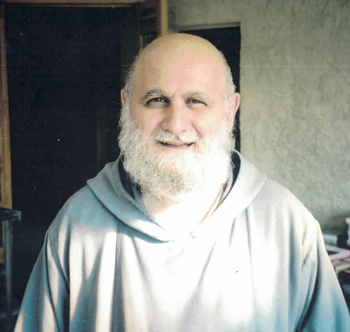When the Holy Spirit is present in us, His actions produce good effects in our lives. One such good effect is the practice of the virtue of Patience. The Holy Spirit’s Gift of Fortitude helps patience to grow.
Patience
Patience is certainly one of the most pervasive of Christian virtues simply because we need it in so many areas of our daily lives. Three such areas we shall consider are patience with ourselves, with others, and with the events of everyday living.
Patience With One’s Self
We need a great deal of patience, first with ourselves. For many people, this is the most difficult of all areas of patience. Certainly, many reasons account for this. I would like to focus basically on one of them. Many people today have what is called a “poor self-image.” This results in low self-esteem. They often fail to see the good within themselves. They tend to view themselves in negative terms. They put down their own potential for good, or they judge themselves to be quite inadequate and incompetent.
One’s real worth as a human person lies in what one is—ultimately, in his or her dignity as a child of God, created in His image and likeness. One’s worth does not depend on what one achieves or on one’s ability to be a productive contributor. At the same time, one’s God-given human dignity is not lost by disabilities or sufferings of any kind. Terence Cardinal Cooke suffered for over ten years with painful cancer before he died. No one knew of his sufferings because he kept them hidden from others while he carried on his important task of directing the Archdiocese of New York, one of the largest and most demanding in the world. Shortly before his death he wrote:
Life is no less beautiful when it is accompanied by
illness or weakness, hunger or poverty, physical or
mental disease, loneliness or old age.
Patience With Others
The second kind of patience we need is patience with others. The faults and shortcomings of others can hit us right between the eyes. Many times our neighbor’s faults are very real and objective. Sometimes, however, we can exaggerate them and in fact, in a few instances—especially with people with whom we may have had long-standing difficulties—we can even perceive faults which actually do not exist. (Remember, not only can beauty be in the eyes of the beholder, but even the lack of it as well!) When we become upset with others, we can easily become judgmental of them in our thoughts, critical of them in our words, annoyed at them in our attitudes, and angry at them in our actions. Impatience, anger, and annoyance can wreak havoc in our spiritual lives. Each can prove to be a big obstacle that hinders our growth in our relationship with God and with our neighbor.
Patience And Growth In holiness
How does patience help us grow in holiness? The faults and shortcomings of our neighbors provoke in us feelings of discomfort, inconvenience, annoyance, and at times, even intense anger. These feelings rise up inside us because of our reactions to the irritating words or actions or attitudes of others. This aspect can be seen very clearly in regard to the most difficult of all forms of patience, namely, the patience connected with loving our “enemies.” Our Lord taught the necessity of this kind of love in His Sermon on the Mount:
You have heard the commandment: “You shall love your countryman but hate your enemy.” My command to you is: love your enemies, pray for your persecutors. This will prove that you are sons of your heavenly Father, for His sun rises on the bad and the good, He rains on the just and the unjust. If you love those who love you, what merit is there in that? Do not tax collectors do as much? And if you greet your brothers only, what is so praiseworthy about that? Do not pagans do as much? In a word, you must be perfect as your heavenly Father is perfect.
Matthew 5:43-48
Remember, by an “enemy” Jesus does not necessarily mean someone with a gun out to get us. We may actually never have that kind of an enemy during our whole lifetime. Rather, He means someone we find very difficult to love, or accept, or tolerate. Maybe the person has hurt us in some way. But whatever the reason may be—whether real, exaggerated or imaginary—that person has become very negative, maybe even hostile, to us. To deal with him or her will require a great deal of self-control on our part! He or she will really test our patience, pushing us to our limit!
The root meaning of the word “patience” is from the Latin word patire, meaning “to endure, put up with, bear with.” Patience enables us to endure what is either painful or inconvenient. As our emotions flare up in reaction to what we have to tolerate, our virtue consists in struggling by the light and strength of the Holy Spirit, to check our raw emotional reaction and gradually gain the self-control necessary to deal with the person and the situation in an appropriately Christ-like manner.
ooo
This article is taken from a chapter in The Gift of God: The Holy Spirit by Andrew Apostoli, CFR which is available from TAN Books.









